
As a law student or a legal professional, you may find yourself overwhelmed with the vast amount of reading, researching, and writing that law school entails. Choosing the best laptop for law school is crucial to ensure that you can efficiently manage your workload and excel in your studies. To make your search easier, I have reviewed an extensive spreadsheet of recent laptop releases, comparing specs and reviews, both professional and user-generated, and have narrowed down the top laptops based on topic-specific requirements and price ranges.
In law school, you'll be dealing with extensive documents, case files, and digital resources, so finding a laptop with long battery life, a comfortable keyboard, and a sharp display should be your priority. Additionally, you'll need a device that is lightweight and portable to easily carry to and from your classes, seminars, and study sessions. As someone who has experience in this field, I know how important it is to have a reliable laptop that can keep up with the demanding nature of law school.
When selecting the best laptop for law school, it's essential to consider factors such as performance, storage capacity, and durability. You don't want your laptop to slow down when you have multiple tabs, PDFs, and Word documents open simultaneously or struggle to store all your case files, notes, and research materials. As part of your legal education, you may also engage in online discussion boards, virtual court sessions, or video conferences, so a laptop with a quality webcam and microphone is also important. By focusing on these key features, you can ensure that you'll have the ideal laptop to support you throughout your law school journey and beyond.
Processing Power: What Every Law Student Needs to Know
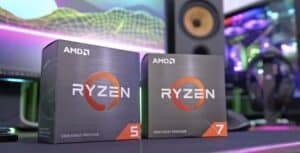
When it comes to choosing a laptop processor for law school, there are a few things to consider. While Apple's M-series and AMD's Ryzen processors are great options, Intel's 12th-generation Core CPUs can still provide a lot of value, especially if you don't need cutting-edge performance.
However, it's important to note that the processor is the least of your worries when choosing a laptop for law school. Instead, prioritize battery life and portability above all else. If you're looking for a Windows laptop, there are plenty of options with 6th and 7th-generation Ryzen CPUs that offer good battery life.
When it comes to comparing processors, I recommend using PassMark as it's one of the most comprehensive tests that includes both single-core and multi-core scores. However, Cinebench R23 is a better choice when comparing processors with different core counts.
If you're looking for a MacBook Air alternative, I suggest looking at ASUS, Acer, or Dell laptops with Intel U-series processors (or AMD equivalent).
To help you decide on the right laptop processor for your budget, here are my recommended options:
| Budget | Processor |
|---|---|
| Minimum | Intel Core i3-1115G4 |
| Recommended | Intel Core i5-1135G7 |
| High-end | Intel Core i7-11370H |
Remember, while a fast processor is important, it's not the only factor to consider when choosing a laptop for law school. Prioritize battery life, portability, and other components like RAM and storage to ensure you have the best experience possible.
Power up your legal graphics game
When it comes to choosing a graphics card for law school, it's important to remember that a dedicated GPU is not necessary for most tasks. However, if you're looking to play games or run other demanding applications in your free time, then a discrete GPU can be helpful.
The laptop GPU market is currently dominated by Nvidia, with their recently released RTX 40 series cards hitting the shelves. However, the RTX 30 series cards still make up the majority of the current notebook GPU market. It's worth noting that desktop GPUs are now more power-hungry, which means that the gap between power-limited notebook graphics and desktop graphics cards has widened in recent years.
It's also important to keep in mind that law firms often have specific requirements for their employees' laptops, which may include restrictions on high-powered GPUs that could overheat the laptop or cause it to emit too much noise.
When comparing different graphics cards, I use 3DMark, one of the most popular benchmarks, to test the entire graphics pipeline, from GPU to CPU performance. I also include other synthetic benchmarks such as Unigine Heaven and 3DMark Time Spy, as they're more indicative of real-world gaming performance.
If you're looking for a gaming laptop, pay attention to the GPU's wattage, not just its CU count. The wattage will give you a better idea of whether the GPU is powerful enough for your needs.
Based on these considerations, here are my recommendations for GPUs based on their expected laptop prices:
| GPU | Expected Laptop Price Range |
|---|---|
| GeForce GTX 1650 | $600-$800 |
| GeForce RTX 3050 | $900-$1200 |
| GeForce RTX 2060 | $1300-$1600 |
In summary, a dedicated GPU is not necessary for law school, but it can be helpful for gaming and other demanding applications. When comparing different graphics cards, pay attention to the GPU's wattage, not just its CU count. Based on expected laptop prices, the GeForce GTX 1650 is the minimum recommended GPU, the GeForce RTX 3050 is the recommended option, and the GeForce RTX 2060 is the high-end choice.
Power up your law studies with high RAM laptops
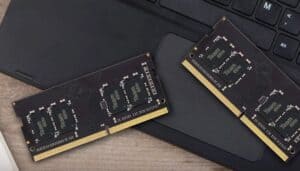
When it comes to laptops for law school, RAM is not the most critical component. However, it's still worth considering if you plan to use multiple applications at once.
A minimum of 8 GB RAM is enough for basic tasks such as browsing, word processing, and video calls. However, we recommend a minimum of 16 GB RAM for law students who need to multitask frequently. With 16 GB, you can comfortably run multiple applications and have multiple browser tabs open without worrying about performance issues.
If you work with large files, such as PDFs or case law databases, or use multiple applications simultaneously, then you should consider investing in a laptop with 32 GB RAM. This amount of memory will ensure smooth performance without any lag or slow-down.
While DDR5 RAM is the latest standard, it's not worth upgrading from DDR4 unless you're looking for a high-end gaming laptop. DDR5 is still relatively expensive, and DDR4 is perfectly capable of handling most tasks, including law school coursework.
When looking for RAM, other specifications to consider include the CAS latency (CL) and frequency. However, these specifications are not essential for law school laptops and can be ignored unless you're building a high-end gaming or workstation machine.
If you're on a tight budget, don't worry too much about the speed of the RAM. Instead, focus on other components such as storage and graphics card (if you plan to play games).
To summarize, we recommend a minimum of 16 GB of RAM for law school laptops, with 32 GB being ideal for heavy multitasking and working with large files. DDR4 RAM is perfectly adequate, and other specifications such as CL and frequency can be ignored unless you're building a high-end machine.
Answering Your Laptop Questions: Law School Edition
Q: What kind of laptop do you need for law school?
Law school doesn't require a particularly powerful laptop, but you'll want something that is reliable and can keep up with your workload. You'll likely be doing a lot of research and writing papers, so a comfortable keyboard and good display are important.
What are the minimum laptop requirements for law school?
The minimum requirements for a law school laptop are an i3-1115G4 processor, 8GB of memory, and a GeForce GTX 1650 graphics card. However, we recommend going for higher specs to ensure smoother performance.
Is a Mac or Windows laptop better for law school?
Either a Mac or Windows laptop is suitable for law school. It depends on your personal preference and the software you'll need to use.
How much storage do I need for a law school laptop?
Law school doesn't require a lot of storage, but you should aim for at least 256GB of storage. If you plan on storing a lot of media files, such as music or movies, you might want to consider getting 512GB or more.
Do I need a dedicated graphics card for law school?
You don't necessarily need a dedicated graphics card for law school, but it might be helpful if you plan on doing some light gaming or if you need to work with graphics-intensive software. The GeForce GTX 1650 graphics card is more than enough for basic usage.
How to choose a laptop for law school?
When choosing a laptop for law school, you should consider factors such as performance, battery life, weight, and price. You'll want a laptop that is powerful enough to handle your workload, but also light enough to carry around with you. We recommend checking out our recommendations table to find a suitable laptop for your needs.
What is the best laptop for law students under $TOPIC_QUESTIONS000?
The HP Victus 15t is a good option for law students on a budget, priced at $900. It features an i5-1135G7 processor, 16GB of memory, and a GeForce GTX 1650 graphics card.
How much RAM do I need for a law school laptop?
We recommend at least 8GB of memory for a law school laptop. However, if you plan on using more demanding software or running multiple programs simultaneously, you should go for 16GB or 32GB of memory.
Can I use a Chromebook for law school?
While Chromebooks are affordable and lightweight, they might not be the best option for law school. Most law schools require you to use specific software, which might not be compatible with Chrome OS. We recommend going for a Windows or Mac laptop instead.
What software will I need on my law school laptop?
You'll need software such as Microsoft Office, Adobe Acrobat, and a web browser for research purposes. Your law school might also require you to use specific software for exams and assignments, so make sure to check with your school for any specific requirements.
5 Best Laptops for Law school
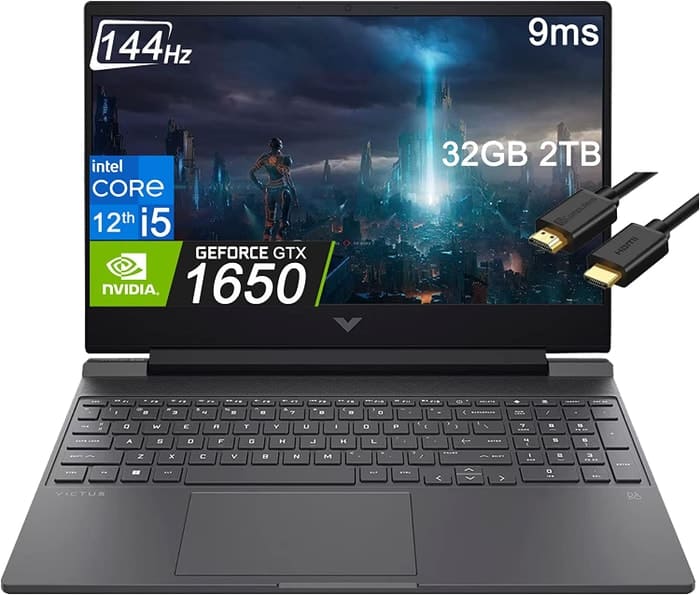
1.HP Victus 15
The HP Victus 15 offers budget-friendly gaming performance and solid specs, making it a great value proposition for law school students, although its battery life and plain design are drawbacks.- Excellent price
- Good gaming performance
- Can double as a work laptop
- Bad battery life
- Rather plain design
Summary
The HP Victus 15 strikes a balance between affordability and performance, making it a suitable option for law school students on a budget. With its capable CPU and GPU, it handles graphically intense tasks and games smoothly, while its 15.6-inch display provides sharp visuals. However, the laptop's battery life is subpar, and its design is plain.
Alternatives
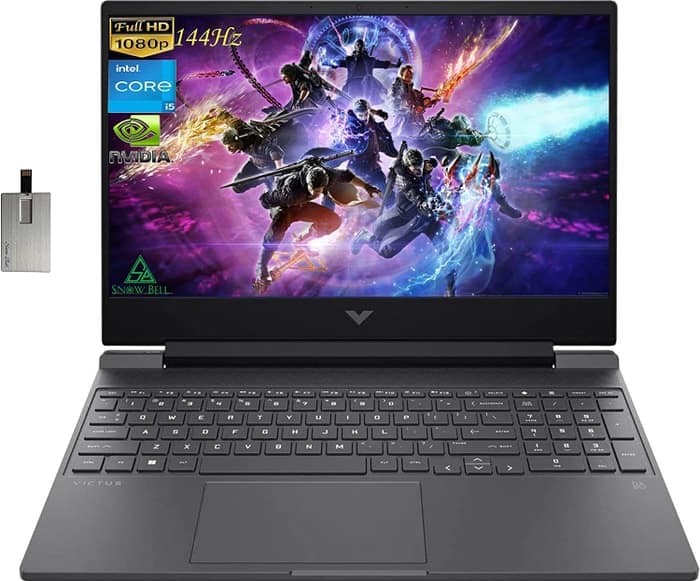
HP Victus
- Delivers smooth gameplay at 1080p.
- Fast SSD.
- No variable refresh rate to reduce screen tearing.
- Some performance loss on CPU under load.

2.ASUS TUF Dash F15
ASUS TUF Dash F15: Affordable and Powerful Option for Law School- Lightweight and well built
- Good screen options
- Decent battery life
- Competitive pricing
- Some quirks affecting everyday ergonomics
- Ports squeezed together on the left edge
- Be careful about the FHD 144Hz panel option
Summary
The ASUS TUF Dash F15 is a lightweight and well-built laptop that offers a balance of performance and affordability. With its good screen options, decent battery life, and competitive pricing, it's a great choice for law school students on a budget.
Reviews
Alternatives

Lenovo Legion 5i Pro 16
- Stylish, sleek form factor
- Gorgeous display
- Webcam quality is poor
- No biometrics for added security
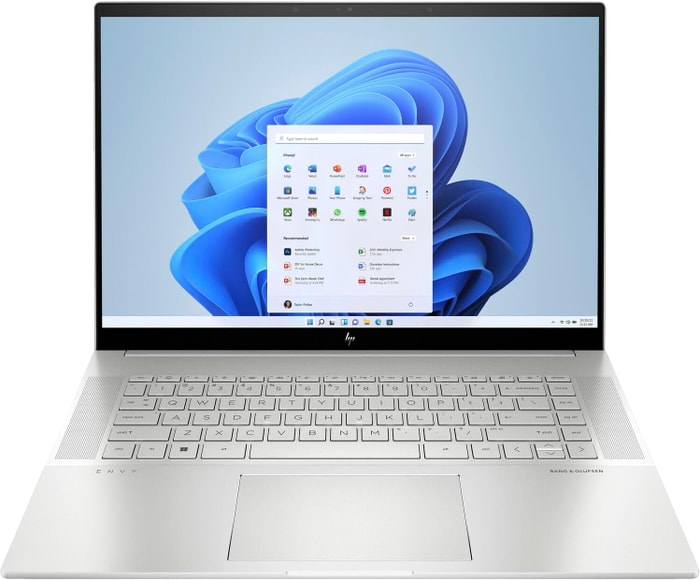 $1,800
$1,8003.HP Envy 16
HP Envy 16: A heavyweight contender for creative apps and light gaming.- Plenty of CPU and GPU power
- New 120Hz screen refresh rate
- High-res webcam
- Sleek design
- Merely adequate base screen
- Optional OLED has fewer pixels than before
- Bulky and heavy
Summary
The HP Envy 16 is a powerful and sleek laptop that offers high-end features such as a 120Hz refresh display and a high-resolution webcam. It provides plenty of CPU and GPU power, making it a great choice for creative apps and light gaming.
Reviews
Alternatives

ASUS ROG Strix G15
- High performance CPU and GPU
- Good workmanship
- Skimpy connectivity
- Coil whine in certain situations
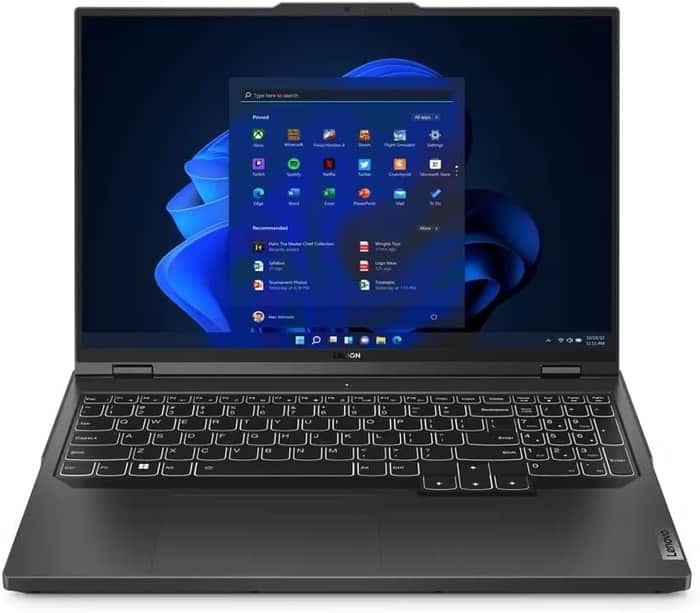
4.Lenovo Legion Pro 5
A well-built mid-tier laptop with good performance and value, but with some drawbacks.- Good build quality and design
- Excellent screen and IO
- Competent CPU with multiple GPU options
- Reasonably priced
- No Thunderbolt or biometrics
- Not as powerful as other i9 HX implementations
- Hotspots during gaming
- Poor speaker quality
Summary
The Lenovo Legion Pro 5 offers a solid build quality, good screen, and ample performance at a competitive price. However, it falls short with hotspots under sustained loads, limited battery life, and subpar speakers.
Reviews
Alternatives
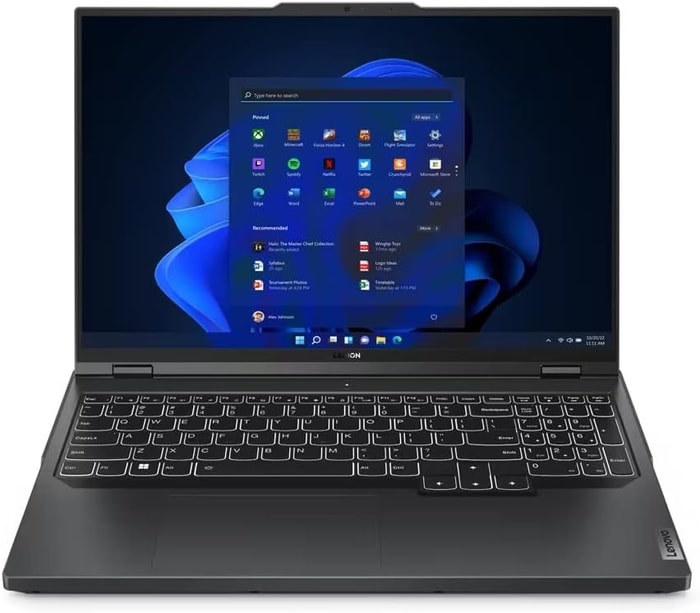 $2,840
$2,840Lenovo Legion Pro 5
- Strong performance for the price
- Quality build and port selection
- Display quality and battery life are just decent
- Bulky and heavy

5.Lenovo Legion Pro 7i 16
Lenovo Legion Pro 7i 16: A formidable gaming laptop with sleek design and impressive performance, offering great value for its price.- Strong overall performance
- Big, bright, and fast display
- Per-key RGB lighting
- Some flex to keyboard deck
- Poor battery life
Alternatives
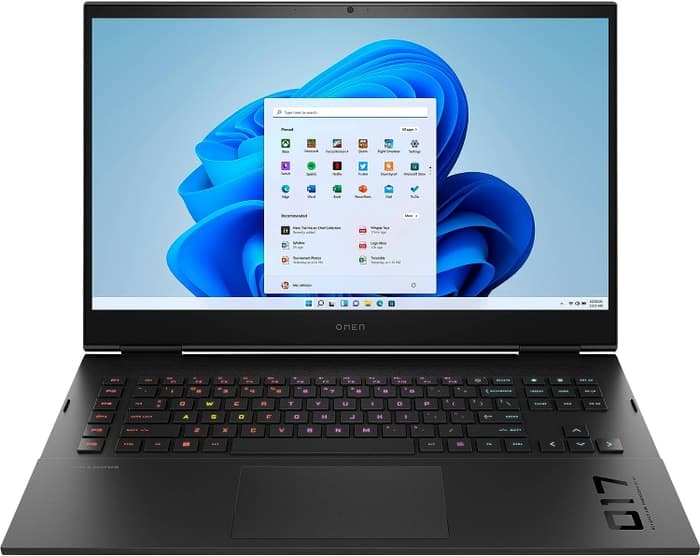
HP Omen
- Slim, relatively portable build for a 16-inch laptop
- Midrange gaming performance at a reasonable price
- All-AMD configuration outpaced by Intel- and Nvidia-based competitors
- Unimpressive 144Hz refresh rate and full HD resolution
Table of the Best Laptops for Law school
| Laptop | Price (approx) |
| HP Victus 15 | $880 |
| ASUS TUF Dash F15 | $1,160 |
| HP Envy 16 | $1,800 |
| Lenovo Legion Pro 5 | $2,630 |
| Lenovo Legion Pro 7i 16 | $3,390 |





